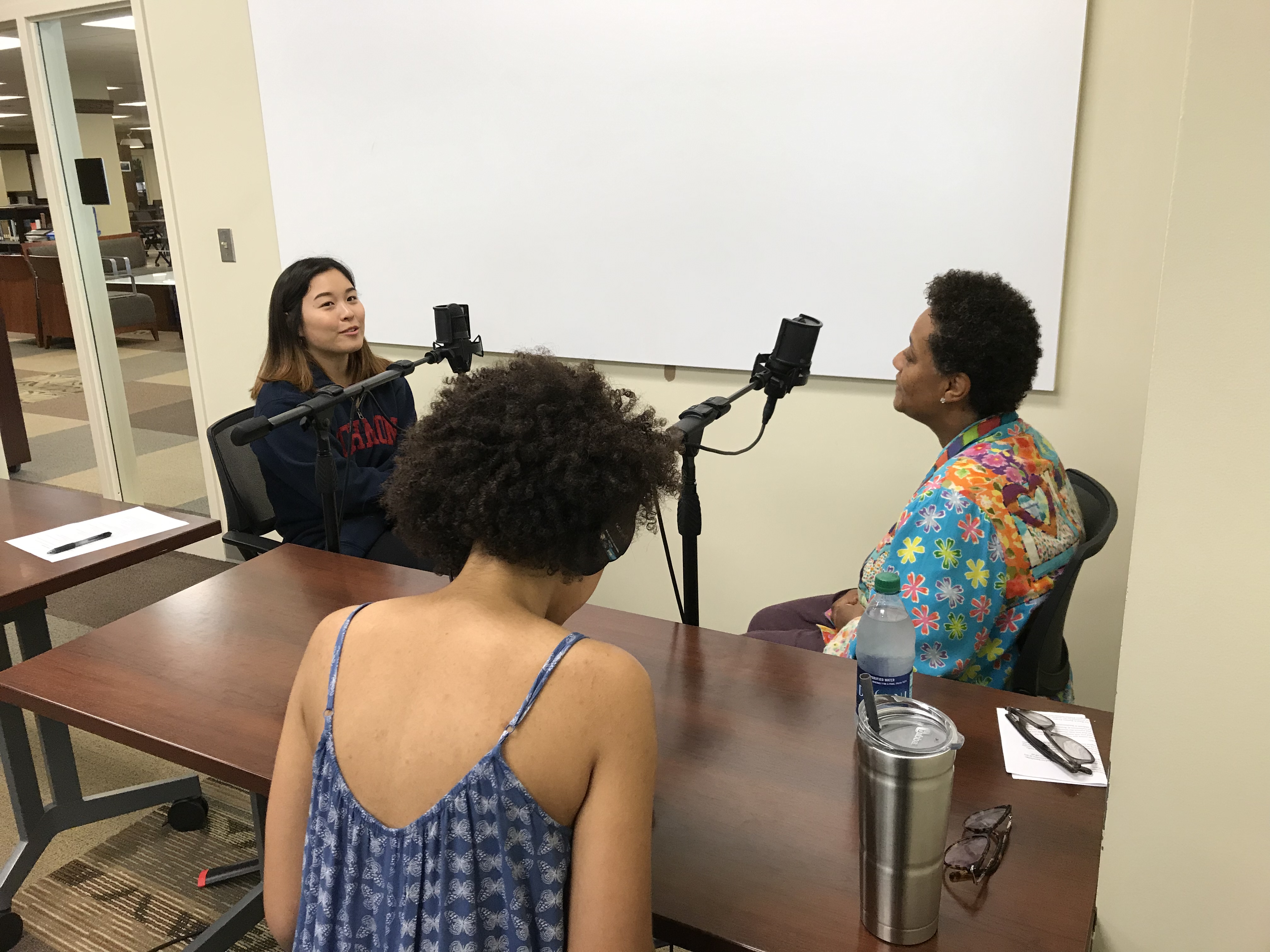by Jenifer Yi
Jenifer Yi is a sophomore from Santa Clarita, California majoring in Biochemistry with a concentration in Neuroscience and a minor in Healthcare Studies. She has been involved with the Race & Racism Project since 2018 and hopes to diversify the conversation and inclusion of all students of color at the University of Richmond. Through her contributions to the project, she wants to push for campus-wide racial awareness. In the future, she hopes to pursue a career in medicine while continuing to advocate and raise awareness for healthcare access for minorities.

With formal interviews a week ahead, I slowly began to realize that I was dealing with real people with real emotions and memories. I was nervous about how to handle sensitive topics but at the same time excited to delve into the personal stories of alumni who once roamed the grounds as young, bristling students. I realized that as the interviewer, I had the power to shine a spotlight on specifics of an interviewee’s story while also being a vector for making University history known to others. In preparation for interviewing Professor Raymond Slaughter, Dominic Finney, and Robin Mundle, I decided to begin my research by looking at the University of Richmond Collegian archives for articles including these individuals. I believed that I would be able to find actual quotations from these individuals or what activities and clubs they were involved in on campus. Rather than trying to create a profile or impression of someone through the writing of a third party, I was particularly interested in forming an impression through the words of the interviewee themselves if I could. While searching, I wondered whether or not these interviewees were outspoken about racial issues and how they fit into the campus community.
It was difficult from the beginning to find articles that gave an in-depth context of who these people were and what their histories were. The issue I faced when digging through the archived Collegian articles were that they only offered short glimpses into the involvement and viewpoints of the interviewees from quotations or extracurricular associations. Trying to imagine the interviewees and the campus climate they may have been studying in and immersed in allowed me to read against the grain, but I still had more questions than answers. What additional emotions and struggles must these people have had to face due to the color of their skin and various involvements on and off campus? There were people who supported the cause of and paved the way for underrepresented students on campus, yet their stories are not widespread. Through the Race & Racism Project, I had the rare opportunity to meet with the individuals I was researching and hear them answer my inquiries first-hand. The importance of oral histories became clear to me – they were an important aspect of filling holes throughout the ill-documented University history surrounding minorities.
In the city of Richmond, Free Egunfemi is a historical activist who founded Untold RVA. While protecting and uncovering the historical narrative of the city, she promotes themes of self-determination, resistance, and intersectionality on both a personal and cultural level. In Richmond, Free Egunfemi fights for the preservation of historical sites and galvanizes citizens to tap into one’s connection with their ancestors. Like Egunfemi, the Race & Racism Project fights to give a voice to the forgotten. Through self-determination, we relentlessly pursue our passions regardless of others’ opinions. We resist conformity and silence. We give support and receive support from our allies. As students and people of color, we are an important segment in the historical narrative. Allies who have uplifted and supported underrepresented students and staff at the University of Richmond have led to their actions being written and archived for the students of the future. The support and acknowledgement of minority students on campus should be upheld today and the today ten years from now, or we as a University risk losing the historical footprint of students and staff of color.
The last step of practicing recording oral histories was just that – speaking with actual alumni. On Thursday, June 6th, team oral history had the pleasure of conducting a mock interview with Iria Jones, a Westhampton College Class of 1987 alumna. I realized the importance of doing background research, as it gave some context to what campus culture was like. For example, the segregation of Richmond College from Westhampton College and the composition of the student body by ethnicity among other factors have had an impact on how the campus is structured to this day. The actions of past, present, and future alumni matter and shape the future of the University of Richmond.

This is excellent work, Jenifer. I would guess that even if you look for stories that engage issues of diversity in the last five years, you would still find a vacuum. Twenty years from now, we will need oral histories from the people who are here now. There is a theme that runs through all of the posts of the Race and Racism Summer Fellows: invisibility.
ProfSi